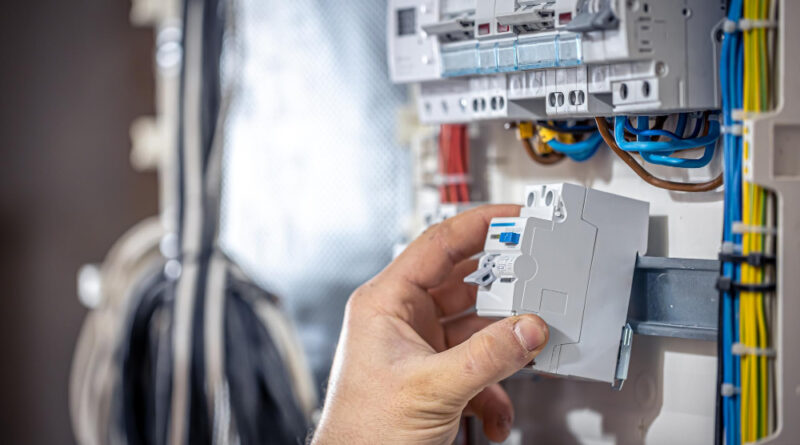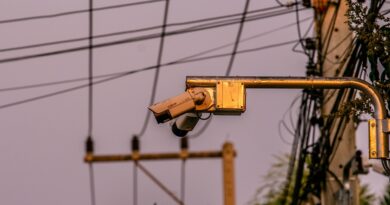Beyond Compliance: Maximizing Safety with Electrical Inspections in Bhiwadi
1. Introduction
Electrical safety is a critical aspect of any building or property, be it residential, commercial, or industrial. In Bhiwadi, ensuring the safety of electrical systems is of paramount importance. Beyond mere compliance with regulations, maximizing safety through electrical inspections is crucial. This article explores the significance of electrical inspections in Bhiwadi, highlighting their benefits and how they contribute to a safer environment.
2. Understanding Electrical Inspections
Electrical inspections involve a comprehensive evaluation of electrical systems, wiring, components, and equipment within a building. Trained professionals conduct these inspections to identify potential hazards, code violations, and areas that require improvement. By assessing the overall condition of the electrical system, inspectors can ensure its safe and efficient operation.
3. The Importance of Electrical Inspections
Electrical inspections play a pivotal role in safeguarding lives and properties. They go beyond compliance with regulations and codes, offering a proactive approach to identify and address potential electrical hazards. Through regular inspections, risks such as electrical overloads, faulty wiring, and outdated systems can be mitigated, significantly reducing the chances of electrical accidents and fires.
4. Common Electrical Hazards
4.1 Electrical Overload
Electrical overload occurs when too many appliances or devices draw power from a single circuit, exceeding its capacity. This can lead to overheating, tripped circuit breakers, and electrical fires. Electrical inspections help identify overloaded circuits, allowing necessary adjustments to be made to distribute electrical load evenly.
4.2 Faulty Wiring
Wiring defects, such as loose connections, frayed insulation, or damaged cables, pose significant risks. They can cause electrical shocks, short circuits, and electrical fires. Through inspections, these issues can be detected and rectified promptly, ensuring the integrity and safety of the electrical system.
4.3 Outdated Electrical Systems
Aging electrical systems may lack the necessary safety features to handle modern electrical demands. Inspections help identify outdated components, equipment, and wiring, allowing for upgrades or replacements. This ensures the electrical system remains up to code and capable of meeting present-day electrical requirements.
5. Benefits of Regular Electrical Inspections
Regular electrical inspections offer numerous benefits to property owners and occupants. Firstly, they provide peace of mind, knowing that the electrical system has been thoroughly examined for potential hazards. Additionally, inspections help prevent costly repairs by identifying issues before they escalate. Moreover, a safe electrical system reduces the risk of electrical accidents, protecting lives and property.
6. Hiring a Professional Electrical Inspector
To ensure accurate and reliable electrical inspections, it is crucial to hire a professional electrical inspector in Bhiwadi. Look for individuals or companies with a proven track record and relevant certifications. A professional inspector will possess the knowledge, skills, and tools necessary to conduct a comprehensive evaluation of the electrical system.
7. The Process of Electrical Inspections
During an electrical inspection, the inspector will assess various aspects of the electrical system, including the main service panel, circuit breakers, wiring, outlets, switches, grounding, and more. They will look for signs of wear and tear, code violations, and potential safety hazards. After the inspection, a detailed report will be provided, outlining any issues found and recommendations for remedial actions.
8. Ensuring Compliance with Electrical Codes
Electrical codes exist to establish minimum safety requirements for electrical installations. Compliance with these codes is essential to ensure the safety of electrical systems. Electrical inspections verify adherence to these codes, ensuring that the installation meets the necessary standards and regulations.
9. Enhancing Safety Measures
Electrical inspections not only identify existing hazards but also provide recommendations to enhance safety measures. These recommendations may include installing ground fault circuit interrupters (GFCIs), surge protectors, or upgrading outdated equipment. By implementing these suggestions, the overall safety of the electrical system can be significantly improved.
10. Maintaining Electrical Systems
Regular electrical inspections also contribute to the proper maintenance of electrical systems. By identifying and addressing issues promptly, the longevity and performance of the system can be preserved. Routine inspections help prevent breakdowns, reduce downtime, and save on costly repairs.
11. The Role of Electrical Inspections in Preventing Accidents
Electrical accidents can result in severe injuries, property damage, and even fatalities. Electrical inspections act as a proactive measure to identify potential hazards and rectify them before accidents occur. By maintaining a safe electrical system, the risk of electrical accidents can be minimized, ensuring the well-being of individuals within the premises.
12. Electrical Inspections for Commercial Properties
Commercial properties often have complex electrical systems that require regular inspections. These inspections ensure the safety of employees, customers, and the property itself. They help detect issues like overloaded circuits, faulty wiring, or malfunctioning equipment that may pose significant risks.
13. Residential Electrical Inspections
Residential electrical inspections are crucial for ensuring the safety and well-being of homeowners and their families. They help identify potential hazards like outdated wiring, faulty outlets, or inadequate grounding. Through inspections, homeowners can make informed decisions regarding necessary repairs or upgrades to maintain a safe living environment.
14. Electrical Inspections for Industrial Facilities
Industrial facilities typically have extensive electrical systems, making inspections even more critical. These inspections focus on identifying potential hazards that may disrupt operations, cause downtime, or compromise worker safety. By conducting regular inspections, industrial facilities can proactively address issues, adhere to safety standards, and maximize productivity.
15. Conclusion
Electrical inspections in Bhiwadi go beyond compliance with regulations; they play a vital role in maximizing safety. By identifying potential hazards, rectifying issues, and ensuring adherence to electrical codes, inspections contribute to a safer environment for both residential and commercial properties. Regular inspections help prevent accidents, protect lives and property, and maintain the integrity of electrical systems.
FAQs
16.1 What is the purpose of an electrical inspection?
An electrical inspection’s purpose is to assess the condition of electrical systems, identify potential hazards, ensure compliance with electrical codes, and enhance safety measures.
16.2 How often should electrical inspections be conducted? The frequency of electrical inspections depends on various factors, including the type of property, its age, and the electrical load it carries. As a general guideline, it is recommended to conduct inspections at least once every five years for residential properties and more frequently for commercial and industrial properties. However, specific regulations and insurance requirements may dictate more frequent inspections.
16.3 Can I perform electrical inspections myself? While minor visual inspections can be done by homeowners, it is highly recommended to hire a professional electrical inspector for comprehensive and thorough evaluations. Professional inspectors possess the expertise, knowledge, and specialized equipment to identify potential hazards accurately. They are trained to understand electrical codes and safety standards, ensuring a comprehensive inspection that covers all crucial aspects of the electrical system.
16.4 Are electrical inspections required for rental properties? Yes, electrical inspections are often required for rental properties. Landlords have a responsibility to provide a safe living environment for their tenants. Regular electrical inspections help identify any hazards, ensure compliance with regulations, and mitigate risks for both tenants and the property itself. It is advisable for landlords to keep records of inspections and address any issues promptly.
16.5 How can I find a reliable electrical inspector in Bhiwadi? To find a reliable electrical inspector in Bhiwadi, consider the following steps:
- Research: Conduct online research and look for licensed and certified electrical inspectors in your area. Check their websites, reviews, and ratings to assess their reputation and credibility.
- Credentials: Verify the inspector’s credentials, such as their licenses, certifications, and affiliations with professional organizations. These credentials demonstrate their expertise and commitment to maintaining industry standards.
- Recommendations: Seek recommendations from friends, family, or other trusted sources who have recently hired electrical inspectors. Their personal experiences can provide valuable insights into the quality of service provided.
- Interview: Contact potential inspectors and ask them relevant questions about their experience, qualifications, and the process they follow during inspections. Assess their responsiveness, professionalism, and willingness to address your concerns.
- Cost and Contract: Request quotes from multiple inspectors and compare their pricing. Ensure that the contract clearly outlines the scope of the inspection, deliverables, timelines, and any additional charges.
By following these steps, you can find a reliable electrical inspector in Bhiwadi who can conduct thorough inspections and help maximize safety in your property.
In conclusion, beyond mere compliance with regulations, electrical inspections in Bhiwadi are instrumental in maximizing safety. By identifying potential hazards, ensuring compliance with codes, and implementing necessary measures, inspections contribute to a secure environment for residential, commercial, and industrial properties. Regular inspections not only prevent accidents and protect lives and property but also help maintain the efficiency and reliability of electrical systems. So, prioritize electrical inspections to ensure the utmost safety in your premises.
FAQs:
- What is the purpose of an electrical inspection?
- How often should electrical inspections be conducted?
- Can I perform electrical inspections myself?
- Are electrical inspections required for rental properties?
- How can I find a reliable electrical inspector in Bhiwadi?




